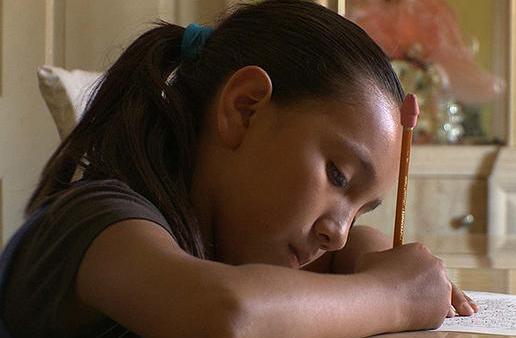
Guest blogger Nicole Baker Fulgham is vice president of faith community relations at Teach for America. CT featured Fulgham in a profile earlier this year.
* * *
Waiting for Superman, the new documentary by Davis Guggenheim, opened in select theaters last week to rave reviews (including CT’s), and expands to more cities in the weeks ahead. The film opened amid much anticipation from the education reform community and is already getting lots of buzz. (Despite opening in just four theaters, the film earned an astounding $34,758 per theater, far above the nation’s top two films, Wall Street 2 and Legend of the Guardians, which earned $5,333 and $4,507 per theater, respectively.)
Waiting for Superman follows five families desperately seeking a quality education for their kids. The neighborhood schools simply aren’t measuring up, so the families apply to a handful of successful public charter schools as alternatives for their children. A highly competitive lottery decides who is admitted—and who goes back to the neighborhood school. One charter school, for example, received 767 applications for just 35 spots.
As a native Detroiter fortunate to attend a high-performing public magnet school, and who went on to teach in urban public schools, I found these scenarios hitting close to home. The reality is that by the time children in poor communities enter the fourth grade, they’re already three grade levels behind their peers in wealthier communities. Of children from these communities who do graduate, they perform, on average, at an 8th grade level. Waiting for Superman confronts these tragic realities.

For those who hope the movie offers a simple solution to this complex problem, prepare to be disappointed. The issues surrounding our nation’s struggling schools are deep-rooted and complicated—and there is no silver bullet to fix them. Change will take a lot of hard work from a broad constituency—including parents, teachers, community and faith-based leaders, teachers’ unions, the business community and policymakers.
But the film illustrates that we actually do know what success looks like when we do the hard work. Across the country, schools featured in the documentary, such as the KIPP Academies and the Harlem Children’s Zone, offer exciting proof points that every child—regardless of where they’re born or the extra challenges they may face—is capable of achieving success on an absolute scale.
In our work at Teach For America, the national corps of young leaders who teach in urban and rural public schools around the country, we see examples of possibility every day in our teachers’ classrooms. Research shows that teachers are the single-most important factor for a child’s academic success. The key is learning from and replicating effective teaching and overall success of high-performing public schools.
As people of faith, we live out the biblical principles of equity and service by getting involved to advance solutions. Students in low-income communities need tutors, policy advocates, and classroom resources. The producers of Waiting for Superman created a website to help churches take action: WeAreNotWaiting.com
The U.S. has the resources, talent, and collective potential to drive real solutions on behalf of our kids. Waiting for Superman illustrates that the millions of children caught in the cycle of struggling schools deserve better. So what are we waiting for? As people of faith, it’s time to take action.







